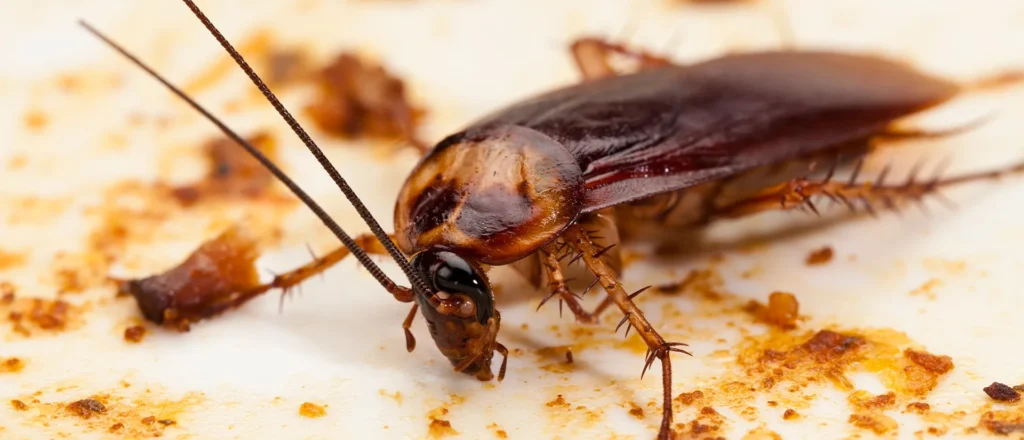Roaches are among the most stubborn pests in any home. When you spot one scurrying across the kitchen floor, the first instinct is to grab whatever is within reach. For many people, that happens to be Lysol, a popular household disinfectant. But the big question is—can Lysol kill roaches, and more importantly, is it safe to use around pets and kids?
Experts in entomology and pest management often caution against using quick fixes for a complex problem. While Lysol may seem like a convenient solution, its role in roach control is not as straightforward as many assume.
Read also: what des hi-lo skill mean
Can Lysol Really Kill Roaches?
The Science Behind Disinfectants and Roaches
Lysol contains chemicals like ethanol and alkyl dimethyl benzyl ammonium chloride, which are designed to disinfect surfaces. When sprayed directly, the liquid can suffocate a roach by blocking its spiracles, the tiny holes it uses to breathe. However, this effect depends on direct contact and is not guaranteed every time.
Why Roaches Survive Harsh Conditions
Entomologists often describe cockroaches as “survivors of evolution.” With a tough exoskeleton, rapid nerve responses, and a resistance to many household chemicals, roaches can recover from exposure that might seem lethal. A light mist of Lysol might stun them temporarily, but it doesn’t eliminate entire infestations.
Where Lysol Works and Where It Fails
Using Lysol on a single visible roach might kill or disable it, but this approach does not reach hidden nests or egg cases. According to pest control specialists, long-term elimination requires targeting colonies, food sources, and breeding grounds.
Risks of Using Lysol for Pest Control
Health Concerns for Pets and Children
Veterinary professionals warn that Lysol chemicals can irritate the respiratory system of cats, dogs, and small children. Direct exposure—through inhalation, licking surfaces, or skin contact—may lead to coughing, allergic reactions, or more severe toxicity.
Surface Damage and Indoor Air Quality
Spraying Lysol heavily on floors, counters, and walls can damage finishes and leave behind residues. Indoor air experts point out that high concentrations of disinfectant vapors may linger, affecting indoor air quality over time.
Why Overusing Household Cleaners Isn’t Sustainable
While it may feel effective to douse roaches in Lysol, the reality is that disinfectants are not formulated as insecticides. Over-reliance leads to wasted product, potential hazards, and no long-term control of roach populations.
Smarter Alternatives to Lysol for Roach Problems
Natural Repellents That Are Safer
Botanists and environmental researchers often recommend essential oils such as peppermint, eucalyptus, or tea tree oil. These natural solutions repel roaches without posing significant risks to kids or pets.
Professional-Grade Insecticides vs. DIY Hacks
Licensed pest management technicians stress the importance of using targeted insecticides approved by regulatory bodies. These products are tested for safety and effectiveness, unlike makeshift solutions. DIY hacks like Lysol might help in emergencies, but they cannot replace integrated pest management strategies.
Long-Term Prevention: Sanitation and Sealing Entry Points
Experts in urban hygiene emphasize that prevention is more effective than reaction. Key steps include:
- Storing food in sealed containers
- Repairing leaks and eliminating standing water
- Sealing cracks and gaps where roaches enter
- Regularly cleaning hidden areas like behind appliances
What Experts Really Say About Lysol and Roaches
Entomologists agree: Lysol may kill a roach on direct contact, but it is not a reliable or safe pest control method. Health experts further highlight the risks of exposing children and pets to strong disinfectants.
Instead, they recommend a balanced approach—using professional pest control for infestations, safer natural repellents for everyday prevention, and strict sanitation to reduce attraction.
Conclusion
The idea of spraying Lysol on roaches may seem convenient, but experts stress that it is neither the safest nor the most effective solution. While a direct hit might kill a single roach, it does not address the root problem—and it can introduce risks for your family and pets.
True control lies in prevention, safe repellents, and professional strategies. Instead of relying on a disinfectant, homeowners are better served by combining cleanliness, proper storage, and tested pest control methods.
At the end of the day, the answer to “Can Lysol kill roaches without harming pets and kids?” is clear: it’s possible, but not practical or safe. Experts advise smarter, safer, and more reliable solutions for lasting results.
Read also: Why Nerovet AI Dentistry Is Changing More Than Just X-Rays and Check-Ups

